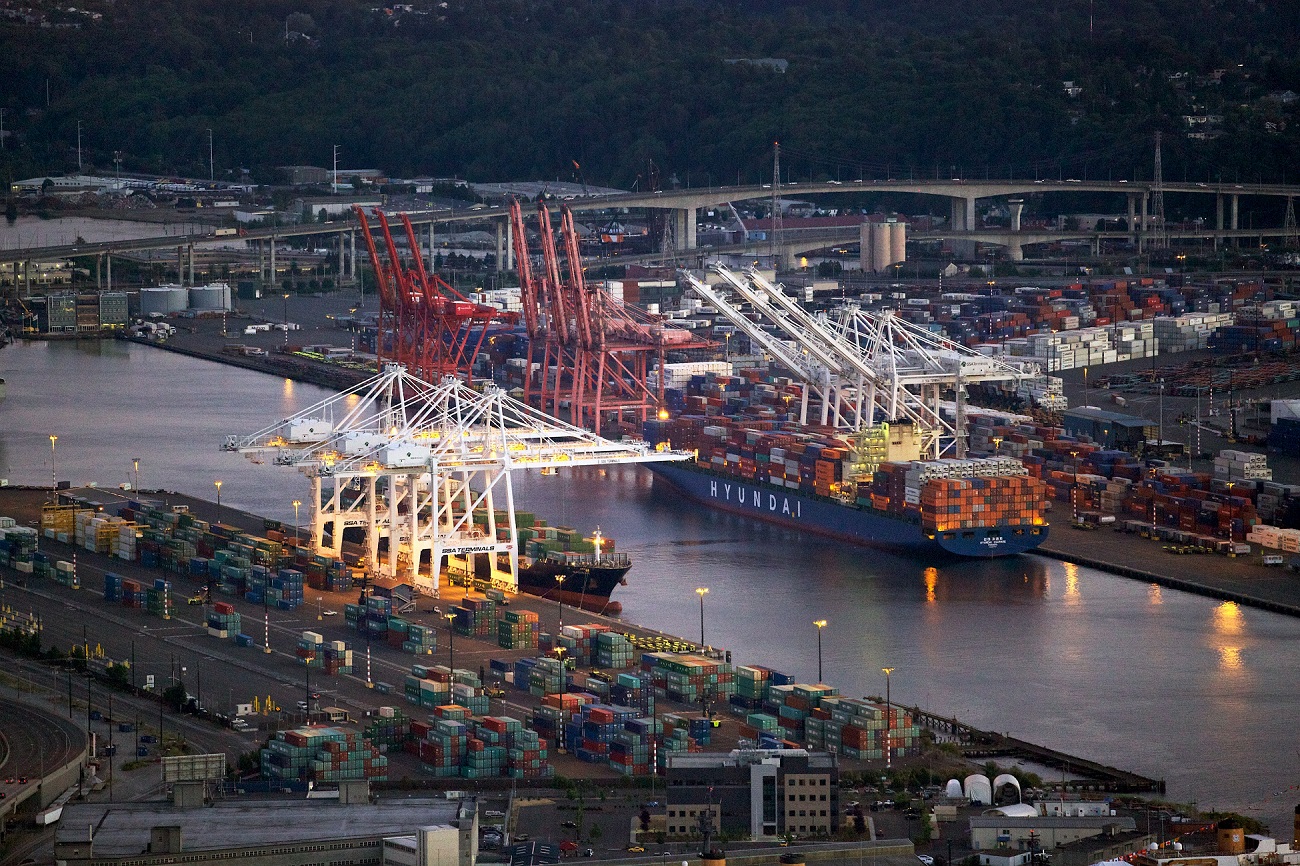—————————————————————————————————————————————————-
Legislative Update: Telephone Town Hall, Vaccine Update, and Police Accountability Bills
Telephone Town Hall
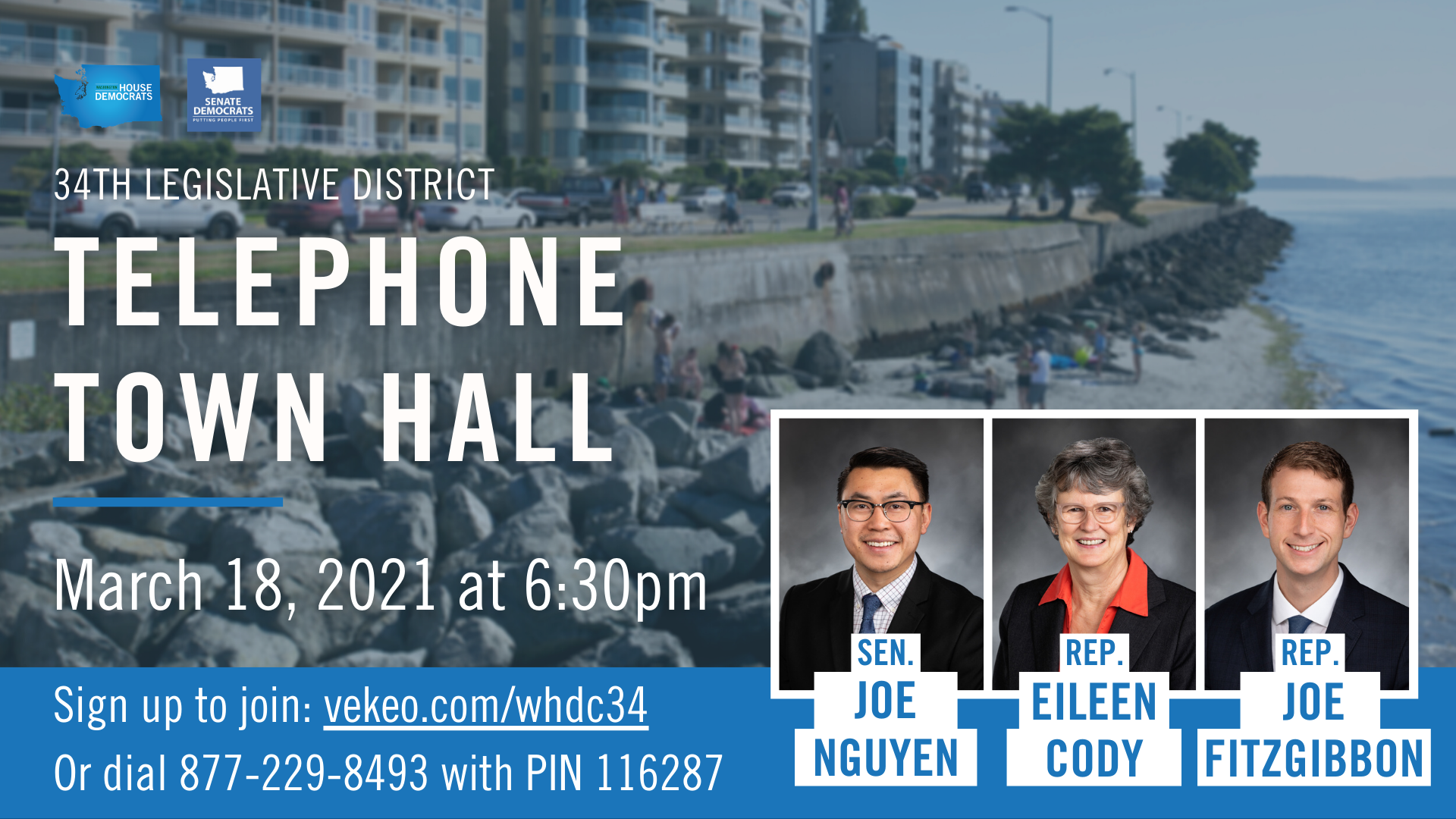
We’re excited to announce our upcoming telephone town hall this coming Thursday, March 18 at 6:30 pm. Sen Joe Nguyen will be joining Reps. Cody and Fitzgibbon to update you on the work we’re doing on your behalf in virtual Olympia, the status of bills in the Legislature, and hearing what your priorities are for us as we enter the final stretch of the legislative session.
What: 34th Legislative District Telephone Town Hall
When: Thursday, March 18 at 6:30 PM
Call In: (877) 229-8493 PIN: 116287
You can sign up to join the telephone town hall or ask questions and listen live by clicking here.
Note from Eileen:
An Update from the CDC and Washington’s Vaccine Distribution

We have new guidance from the Centers for Disease Control (CDC) for people who are fully vaccinated against COVID-19. Here’s what you should know:
- If you have been fully vaccinated (meaning it has been two weeks after receiving the second dose of the Pfizer or Moderna vaccina or two weeks after receive the single dose of the Johnson & Johnson vaccine), you can gather indoors with other FULLY VACCINATED PEOPLE without wearing a mask.
- You can also gather with unvaccinated people from ONE other household without masks as long as they are not at high risk from serious illness.
- Even fully vaccinated, you should take precautions in public and keep doing what we are doing now. Wear a mask, stay at least 6 feet apart from others, and avoid crows or poorly ventilated areas.
The governor has announced updates to the vaccine distribution plan, including adding teachers into the current phase. With President Biden’s announcement of more vaccine acquisition and the American Rescue Plan providing billions to states for vaccine distribution, we expect more people will be able to access vaccines through March and April. We have started meeting the governor’s goal of 45,000 vaccinations each day, and the mass vaccination site at Lumen Field will serve up to 150,000 people every week when fully operating and vaccine availability increases. The City of Seattle has also opened a vaccination site at the Southwest Athletic Complex at 2600 SW Thistle St across from Chief Sealth International High School.
Make sure to use the Phase Finder tool to see if you’re eligible for the vaccine. You can also find a list of vaccine locations across Washington state by clicking here. More information about the next vaccine phases is also available in English at this link and in Spanish (para español) at this link.
I also wanted to update you on a bill that is going to strengthen and improve our foundational public health system. HB 1152 will create regional shared service centers that will coordinate public health between local health jurisdictions. This is especially important for rural areas that lack certain services or staff that are needed during an outbreak or a pandemic, such as an epidemiologist. The bill also would double the state’s investment in public health funding and removes politics from local public health boards through the requirement that non-elected members balance out the number of elected officials.
The COVID-19 pandemic has strained us all but as more people get vaccinated and focus on the end goal, the sooner we will be back to a version of normal that allows us to spend time with friends and family, visit our favorite restaurants, and travel again. We’re on the right track and we just need to keep at it a little longer.
House Passes the Working Families Tax Exemption
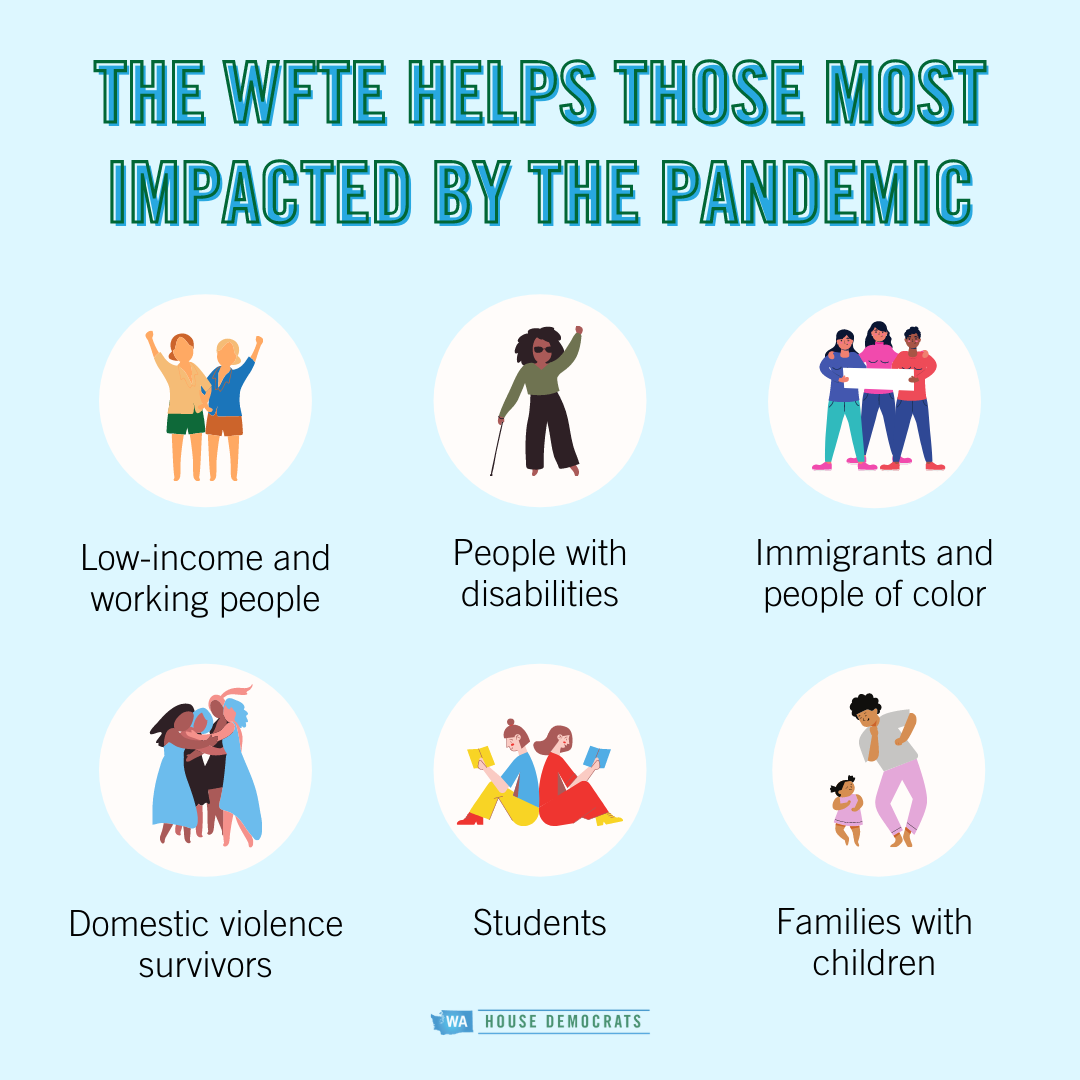
For years, we’ve had the Working Families Tax Exemption in state law, but never funded it. While we always wanted to, the Great Recession, the various court cases around behavioral health and school funding, along with a Republican State Senate majority for many years kept us from funding all of our priorities. This year, that could change.
Despite the pandemic, the House voted to update and improve the working Families Tax Exemption, and treat it like any other tax exemption—meaning, it must be implemented. If it’s approved by the Senate, we will finally begin providing this important rebate program to working families who make the least and pay the most in taxes. This will be a lifeline for our low-income workers, people of color, immigrants, refugees, and families.
Note from Joe:
Modernizing Sound Transit’s Fare Enforcement
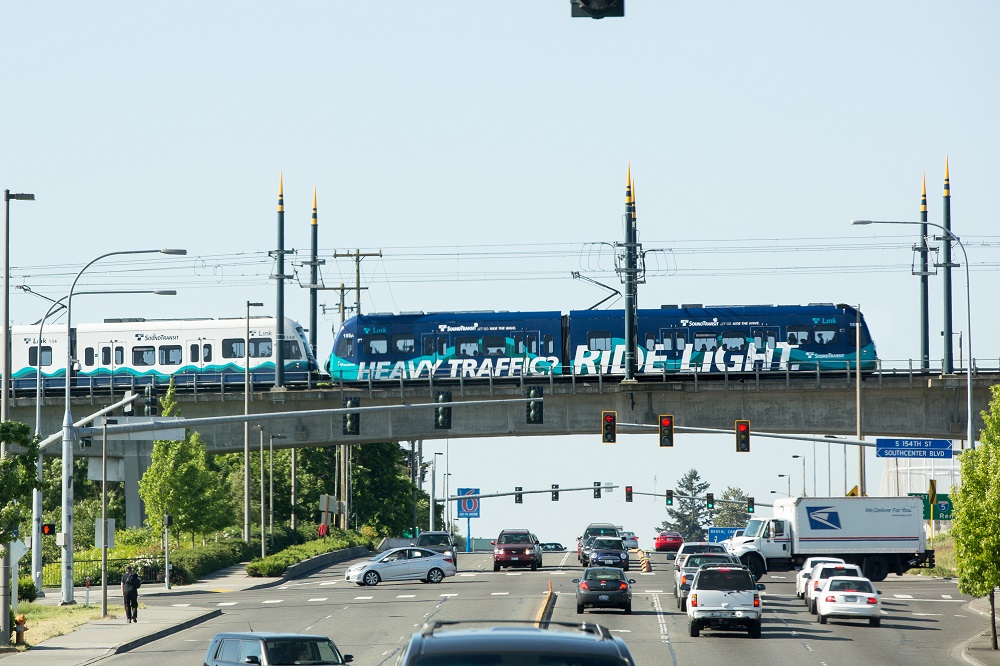
In 2019, King County Metro adopted a new system for resolving fare enforcement violations. With an eye toward racial equity, they moved their fare enforcement out of the court system and towards an administrative process. This change has led to a decline in fare evasion and increased resolution of fare evasion fines.
Sound Transit is prevented by state law from adopting this model. My bill, HB 1301, would allow Sound Transit to adopt the best practices exemplified by King County Metro. HB 1301 was passed the House on March 3rd with a 96-1 vote. I am hopeful that it will be approved by the Senate and will improve the equity and effectiveness of Sound Transit’s fare enforcement.
Protecting communities with safer police tactics
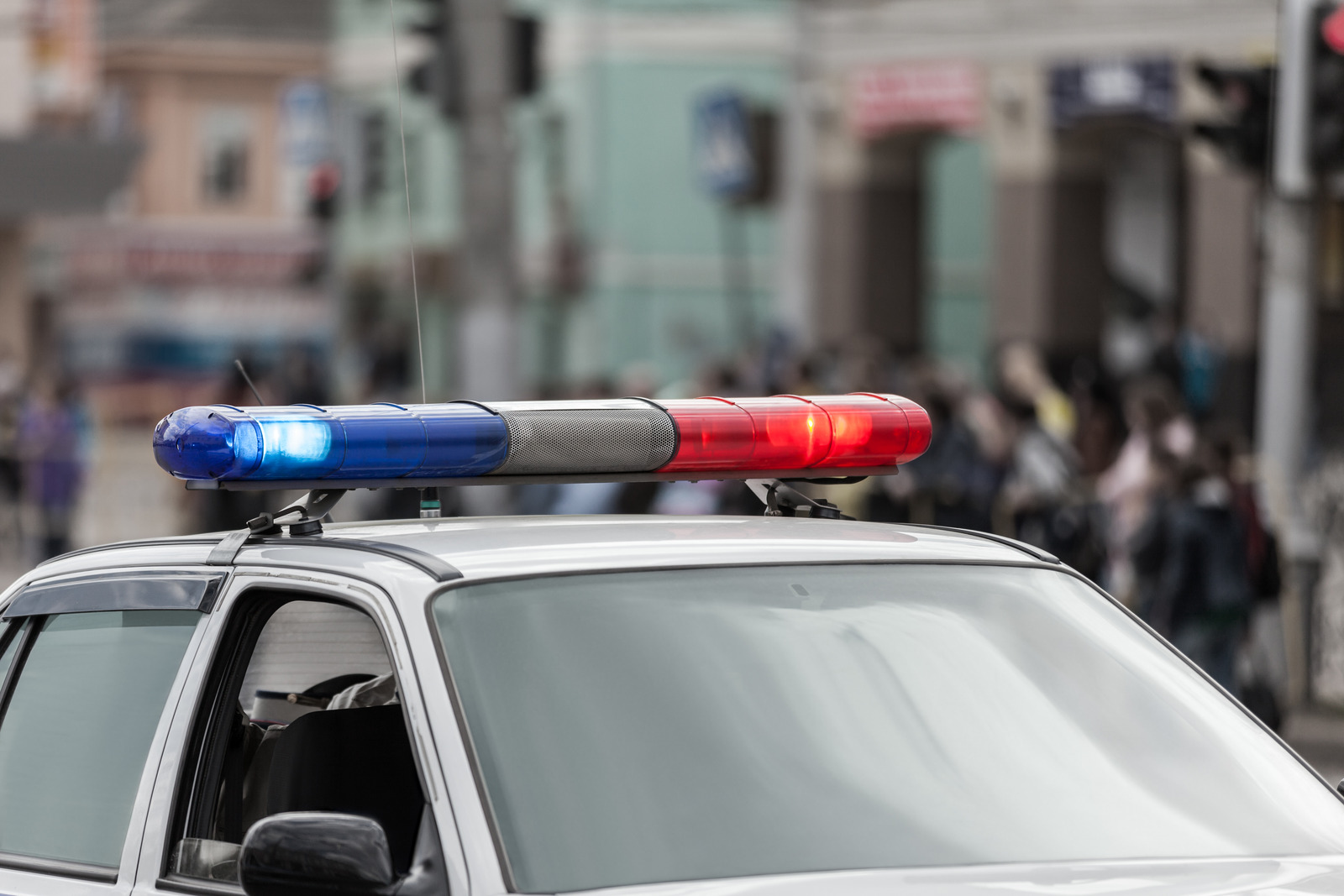
“Justice is just us coming together to make public policy for infinite impact.” -Rep. Jesse Johnson (HB 1054 prime sponsor)
On February 27th, House Democrats passed legislation establishing baselines for police tactics that truly uphold just, equitable public safety. HB 1054 is a call to end unnecessary police violence, and it represents our commitment to stand for justice and the preservation of human life. Dangerous and unacceptable police tactics such as chokeholds, neck restraints, and no knock warrants are banned by the bill, and other risky tactics are curtailed. Shooting at a moving vehicle is banned except if the vehicle is being used as a weapon, tear gas is prohibited except for very specific circumstances, and hot pursuits which are extremely dangerous for police, the suspect, and the community are limited. This bill helps us begin the process of building trust between communities of color and law enforcement.
Too many families have suffered unimaginable loss. We’re grateful for their willingness to share their stories, and we’re grateful for the organizers, advocates, and law enforcement who helped craft this legislation. Together, we’re shaping a Washington that is safer for Black and Brown communities.
Establishing the Office of Independent Investigation
On the first anniversary of the death of Manuel Ellis at the hands of the Tacoma Police, House Democrats passed HB 1267 to establish an independent agency to investigate police uses of deadly force. The Office of Independent Investigation will be a new independent agency housed within the Governor’s office. It was recommended by the Governor’s Task Force on Independent Investigations of Police Use of Force which was formed after the revelation that the Pierce County Sheriff’s Office had failed to comply with the independent investigation requirements set out in Initiative 940.
The new agency would create regional teams that could respond to a deadly use of force within one hour to secure the scene and process evidence. Staff at the new agency will be trained in the history of racism in policing, tribal sovereignty, implicit and explicit bias, intercultural competency, a racial equity lens, anti-racism, and undoing institutional racism. The Office of Independent Investigations would also have a strong focus on communicating with the community and the family of the person killed. By ensuring truly independent investigations into police deadly uses of force we can begin to build trust between the community and law enforcement. Nothing we do will repair the loss and trauma suffered by the Ellis family, but this is one more step toward accountability, transparency, and justice.
Legislative Update: Step One for COVID Relief, Wealth Tax, and Environmental Bills Snapshot
Step One for COVID Relief: Rent relief, small business grants, schools, and vaccines!
Washington state, like the rest of the country, is facing unprecedented challenges in the wake of COVID-19. Washingtonians from every walk of life are experiencing devastating health impacts, economic loss, and social disruption caused by the global pandemic. While we have taken steps as a state to help those who are struggling, we know we need to do more to provide relief to our families and businesses so that all Washingtonians have the tools to recover.
This week, the House passed major relief to support Washington’s community and economic recovery. Step One of the Democratic plan, HB 1368, distributes $2.2 billion in federal funding to ease the financial hardship of struggling renters, small restaurants and other neighborhood businesses, school districts, uninsured and underinsured individuals, and Black and Brown communities, which have been disproportionately hurt during the pandemic.
HB 1368 includes:
- $365 million in rental assistance;
- $52 million for food, cash assistance, and Temporary Assistance for Needy Families (TANF);
- $714 million for schools to address learning loss, keep teachers on the payroll, and to help schools get ready for students to return to the classroom;
- $146 million to support all Washingtonians, including $70 million for long-term care and developmental disabilities programs and $6 million for health care for those who are underinsured and uninsured. The plan also includes $65 million for immigrant relief assistance and $5 million for grants to provide emergency financial aid for undocumented college students;
- $240 million in small business grants similar to the grants that went out last year.
HB 1368 also includes $618 million for vaccine administration, contact tracing, and testing so that we can make it through the coming months as safely as possible.
All people in our state should be able to recover from the impacts of this pandemic, and this legislation is a critical first step in that process. The bill is now headed to the Senate for consideration. I look forward to seeing it on the Governor’s desk and voting on the next steps in our plan to help more people in Washington!
Unemployment Insurance Relief for Small Businesses and Workers
Our offices receive emails and calls on many different issues daily but this year, of course, the coronavirus and its consequences have taken center stage. We have heard from many business owners who are facing unprecedented hikes (up to 500 percent in some cases!) in their Unemployment Insurance premium tax bills, and from struggling workers whose unemployment benefits are just not enough to support their families.
The urgency of this matter could not be overstated. We had to do something, and we had to do it right away. So the first week of session, the chairs of the labor committees in both chambers introduced bipartisan identical bills (SB 5061 / HB 1098) to bring relief for both businesses and workers. Both the House and Senate passed this bill last week and it is now heading to the Governor’s desk.
Business-owners will breathe more easily seeing the reductions in their UI tax bills due in April, and the state’s hardest-hit lowest-wage workers will see a 5 percent raise in their unemployment benefits. This means people who make between $21,000 and $27,800 annually will receive a larger share of their weekly wages in benefits.
For the details and information on how the bill will better prepare our state for the next health emergency, as well as rebuild Washington’s Unemployment Insurance trust fund, please go here.
Note from Eileen:
The Washington State Wealth Tax
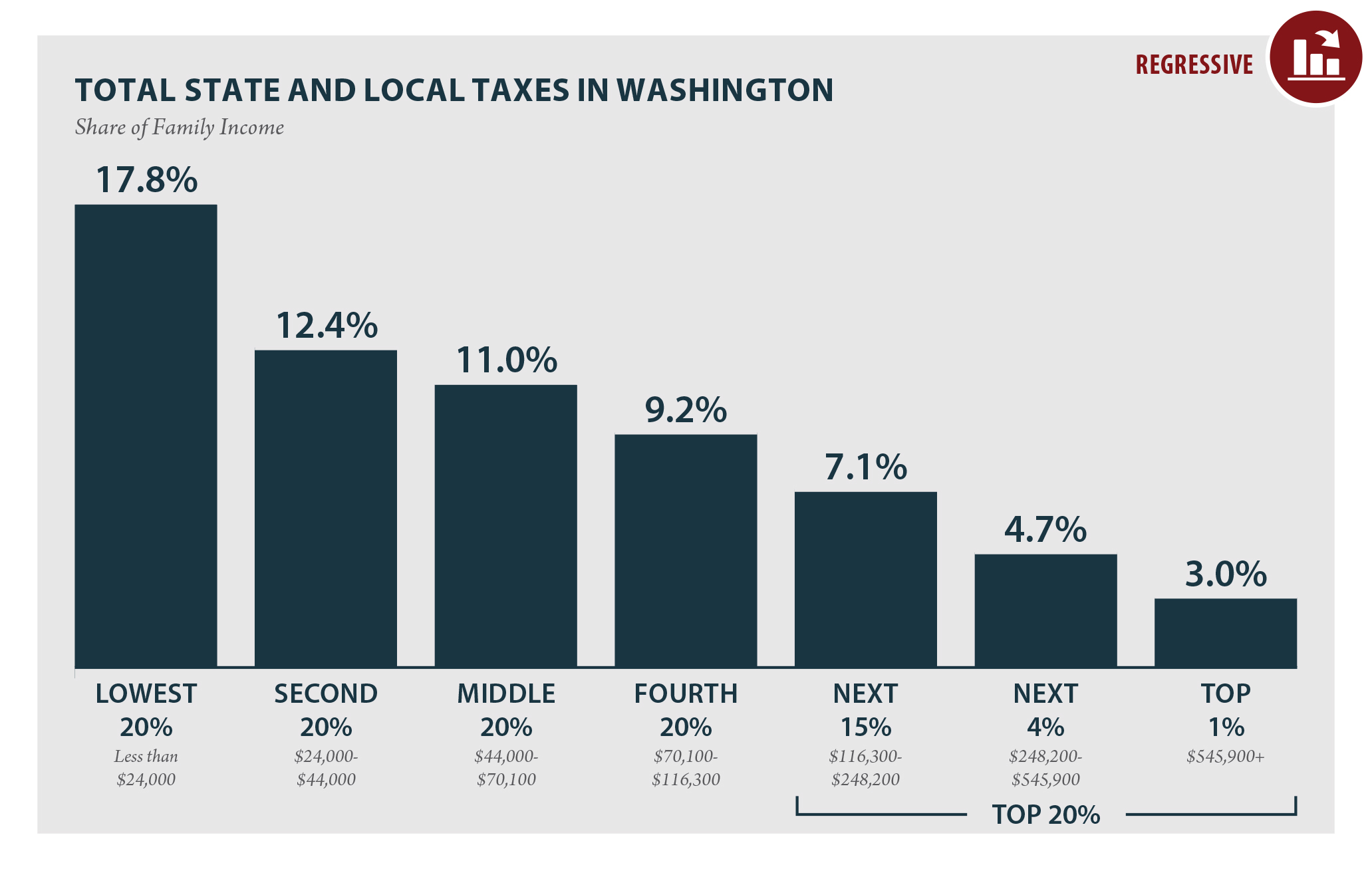
Graph: Institute for Taxation and Economic Policy
Washington is an economic and social leader in our country, but that’s at risk because we have massive wealth inequality and a tax structure that perpetuates it. Washington’s regressive tax structure unfairly burdens our lower and middle-income earners disproportionately, forcing working families to fund fundamental community services.
Last week, Representative Frame introduced legislation to the House that would improve the equity of Washington’s tax code by creating the Washington State Wealth Tax. I am a proud cosponsor of HB 1406, The Washington State Wealth Tax, which narrows the existing tax preference that exempts all intangible property and assesses a modest one percent tax only on an individual’s financial intangible assets, such as publicly traded options, futures contracts, stocks and bonds, in excess of $1 billion.
With an estimated 100 billionaires residing in Washington state, this tax would generate roughly $2.25 billion per year. Some of the revenues generated by the Washington State Wealth Tax will be used to offer credits against taxes paid disproportionately by low- and middle-income families and small, start-up and low-margin businesses. Revenues generated by the Washington State Wealth Tax will also be used to fund other critical services, such as education, child care, public health, housing, public safety, and other vital government programs and functions.
The people of Washington deserve an equitable tax system and I am glad to see this bill introduced, as it is a step in the right direction and away from our historically regressive tax structure.
Restoring rights to the formerly incarcerated
Over the last few weeks, many of you have reached out to me to express your support for restoring voting eligibility to those formerly incarcerated individuals convicted of felony offenses. Though Washington state currently allows those with felony convictions the opportunity to have their voting rights reinstated, the process requires multiple steps.
HB 1078, which has passed out of committee and is now waiting for a vote off the House floor, seeks to simplify the process by restoring the voting rights for those formerly incarcerated individuals convicted of a felony who are not in total confinement under the jurisdiction of the Department of Corrections. This legislation also removes previous provisions that allowed voting rights to be revoked upon failure to pay legal fees.
If passed, HB 1078 will require the Secretary of State to review a list of persons ineligible to vote due to a felony conviction against a list of registered voters once a month, rather than the current requirement of twice a year. I support this bill and hope to see it brought to the House floor for a vote, and Joe is a co-sponsor of this legislation.
This legislation takes significant strides in expanding voter eligibility and advancing equity in our state. It will restore many Washingtonian’s voting rights and increase opportunities to engage in the democratic process.
Note from Joe:
Environment & Energy Highlights for 2021
As Chair of the House Environment & Energy Committee, I work closely with environmental activists, Native American tribes, business, and the community on legislation to make Washington cleaner, greener, and healthier. Here is a snapshot of some of the most important legislation I am working on in the environmental space this year.
HB 1091 Low Carbon Fuel Standard
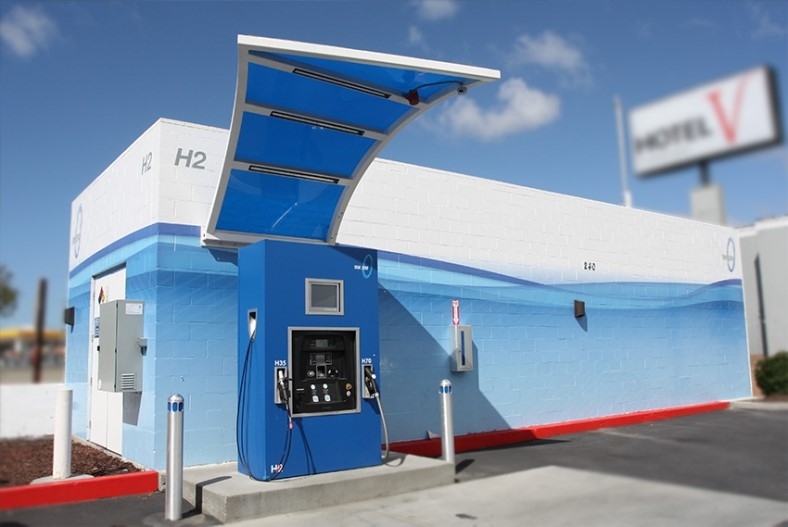
Photo credit: California Fuel Cell Partnership
Washingtonians have long demanded strong action to confront climate change. The transportation sector makes up 45% of the emissions in Washington State. In order to truly take action on climate change, Washington must follow its neighbors on the West Coast and adopt emissions standards for transportation fuel. I have introduced a low carbon fuel standard (LFCS) for the past couple of years, but after this year’s devastating wildfires, we are finally gaining the momentum we need to join Oregon, California, and British Columbia in regulating our state’s single largest source of emissions.
This bill will not only make our state cleaner and reduce emissions. It will also spur economic activity and growth. Washington can become a leader in producing and exporting clean, green biofuels. Corporate entities like Alaska Airlines and others like the Port of Seattle recognize that we are falling behind in the race to develop a biofuels industry. The LCFS will reduce emissions in Washington and also create sustainable, living wage jobs.
Hydrofluorocarbons (HFCs) are powerful greenhouse gases that are mainly used for cooling and refrigeration. They are one of the fastest growing greenhouse gases and while still a small proportion of overall greenhouse gases, they are roughly 1,400 times more damaging to the climate than carbon dioxide.
The Legislature took a big step in regulating HFCs in 2019, but this legislation will go farther by setting a maximum global warming potential threshold and by applying regulations for ozone depleting substances to HFCs. It also directs the Department of Ecology to set up a refrigerant management program to safely manage and dispose of HFCs going forward.
HB 1075 Regulating Greenhouse Gas Emissions from Rideshare Companies
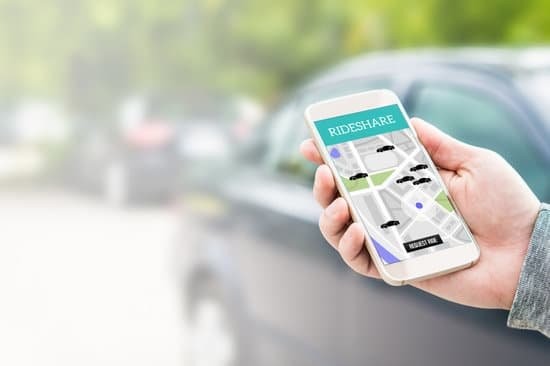
It only takes a short drive around Seattle to see how much Uber and Lyft have changed the landscape of urban and even suburban transportation over the last decade. Now is the time for these rideshare companies to take responsibility for their emissions impact. I am proud to be working with my fellow Seattle Representative Liz Berry to support legislation to require rideshare companies to do their part to reduce greenhouse gas emissions. Her bill, HB 1075, requires rideshare companies to record their miles driven and greenhouse gases emitted. That information will be submitted to the Department of Ecology who will set emissions reduction targets that rideshare companies will have to make a plan to meet. Rideshare companies are becoming a bigger part of the transportation landscape. Everyone needs to do their part to tackle climate change, and these multi-billion dollar companies are no exception.
Thanks for reading!
Legislative Update: Vaccine Update, Expanding Healthcare Access, and Local Issues Updates
COVID-19 Vaccine Update
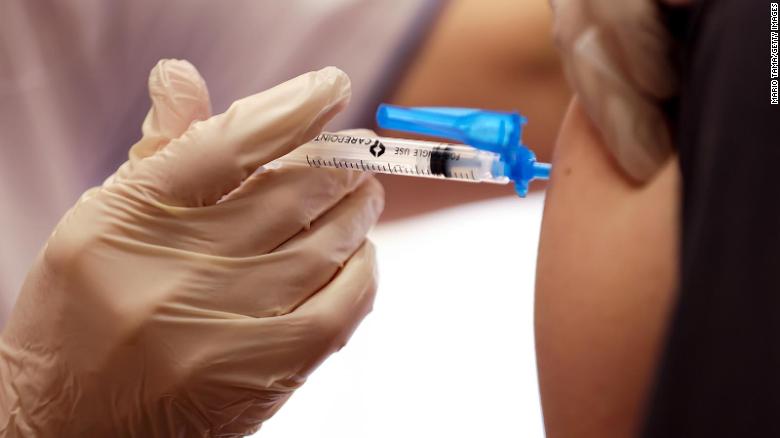
On Monday, the governor announced changes to how the vaccine is distributed and his plans to speed things up. The first big change is that the current phase will now allow people 65 and older to be vaccinated, when it was previously 70 and up. The next is his plans for improving the vaccine distribution infrastructure, including mass vaccination sites across the state. Pharmacies and other providers will now be required to administer 95% of their vaccines within a week of receipt, and they need to report how many vaccines they’ve gone through to the state. If a pharmacy looks like it will have extra, the Department of Health can reallocate those vaccines and send them somewhere they are needed.
Also part of the governor’s announcement is the multiple partnerships he’s established with Costco, Starbucks, Microsoft, labor unions, and SeaMar to work with the state and National Guard to make sure pharmacies and other providers have the infrastructure they need to get vaccination rates up to 45,000 per day.
The other part of his announcement is the Department of Health’s new Phase Finder website, where you can see if you are eligible to receive the vaccine and, if you’re not, sign up to be notified for when your phase is called. You can check now at http://findyourphasewa.org/
Note from Eileen:
Expanding Healthcare Access

In the Health Care & Wellness Committee, we’re hearing several bills that expand access to healthcare and will help us not just during the COVID-19 pandemic, but in the future.
One bill that is scheduled for a hearing next week expands coverage for telemedicine to include audio-only telemedicine. Telemedicine is a great alternative to traditional medical visits, especially during a pandemic. But for patients without access to a computer or a smartphone with high-speed internet, telemedicine has major inequity issues. Rural areas are particularly susceptible to this inequity, which is why I’m excited about Rep. Riccelli’s bill that I’ve co-sponsored (HB 1196). It will mean patients can use a regular phone for their telemedicine visits.
Support for the Working Families Tax Credit
I am co-sponsoring (along with my seatmate Rep. Joe Fitzgibbon) legislation this year that would update the Working Families Tax Credit (HB 1297). The WFTC is a sales tax rebate program that has never been funded in the budget, despite being created over a decade ago. It’s a tax break for working families, low-income college students, workers that gives them a cash rebate similar to the federal Earned Income Tax Credit. It isn’t a lot of money, but can be a small boost to those people who need it the most, and can make a real difference to many families who are struggling.
Note from Joe: Local Issues Update
White Center- Local Control for Safety Decisions
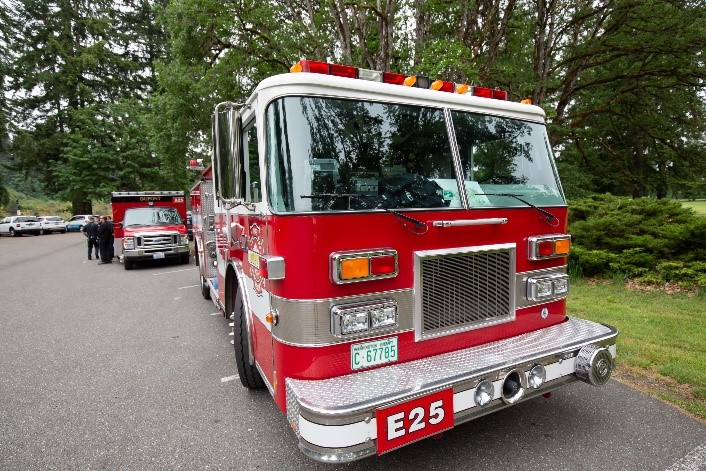
Two years ago, a 70 year old man and his dog were killed in White Center in a fire caused by fireworks. While most cities in the Puget Sound have banned fireworks, as an unincorporated area, White Center does not have a ban on fireworks. If King County were to enact a ban on fireworks, state law prevents that ban from going into effect for a full year. To remedy this, I introduced HB 1059.
HB 1059 removes the one year waiting period on fireworks bans. If our local governments decide that fireworks are a hazard to public safety, the law should go into effect immediately. HB 1059 was heard in the House Local Government Committee on Wednesday, January 20. You can find video of the hearing on www.TVW.org.
Vashon Island- Protecting the Vashon Parks District
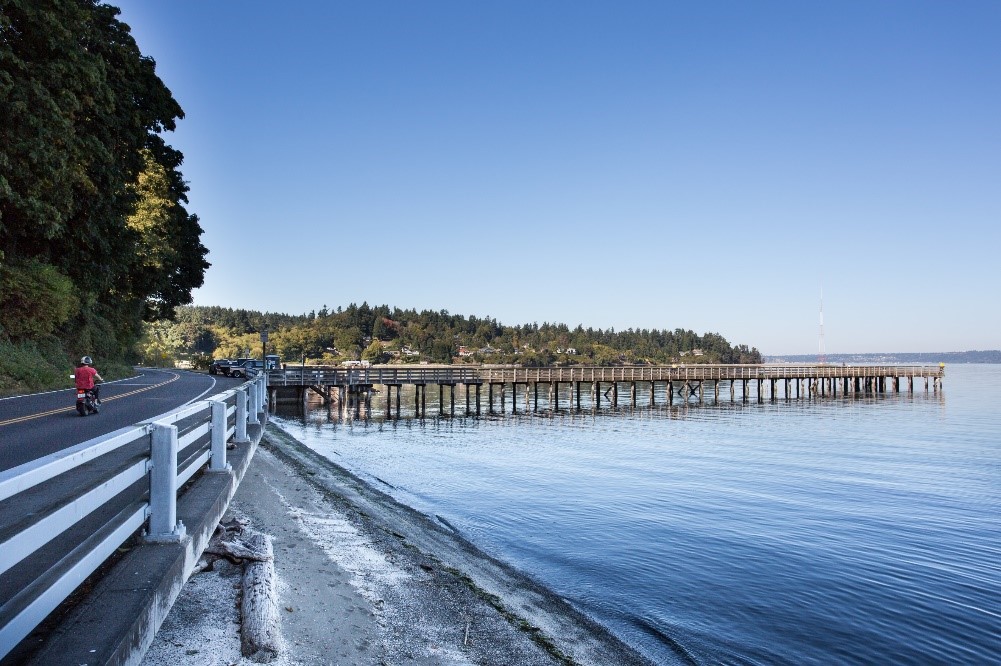
Vashon Parks District is in danger of being significantly defunded or losing funding entirely. The Parks District is its own local taxing district and receives their funding from Vashon Island property taxes. The problem is caused by Washington’s complex property tax system. Washington has a constitutional limit of $10 per $1,000 of assessed value of property taxes. This $10 is split between state and local property taxing districts. Local taxing districts cannot charge more than $5.90 per $1,000 of assessed value in total. Local taxing districts fund a wide array of county and local services including King County Roads and Libraries and local taxing districts like the Vashon Park District. These districts are broken into “senior” and “junior” taxing districts. When “senior” taxing districts with a higher priority raise their rates, it leaves less of the available property tax dollars for “junior” districts. In places like Vashon Island, this can mean the elimination of Vashon Parks District.
I introduced HB 1034 with my seatmate Rep. Eileen Cody to craft a narrow solution to this problem for Vashon Island. My bill would move the Vashon Parks District out of the $5.90 per $1,000 assessed value constitutional limit and allow it to draw funds from a different pool of property taxes. This change will ensure that the Vashon Parks District can continue to serve the people of Vashon Island.
West Seattle Bridge Update
Automated traffic cameras are now being used by the Seattle Department of Transportation to monitor access to the West Seattle low bridge. As a reminder low bridge access is restricted from 5 AM-9 PM to the following vehicles:
-Emergency vehicles
-Transit vehicles (King County Metro buses and school buses)
-Freight vehicles
-People walking, rolling, using a scooter, or biking
-Employer shuttles
-Vanpools
-Pre-authorized vehicles
Personal vehicles and rideshare services can use the bridge from 9 PM- 5AM. Vehicles without access that use the low bridge will now automatically be sent a $75 ticket. SDOT will monitor traffic patterns and make adjustments to this policy as necessary.
This remote monitoring was made possible by HB 1793, which I passed last year. That bill authorized cities to use traffic cameras to monitor additional violations such as blocking the box or using a bus lane.
Follow me on Facebook!
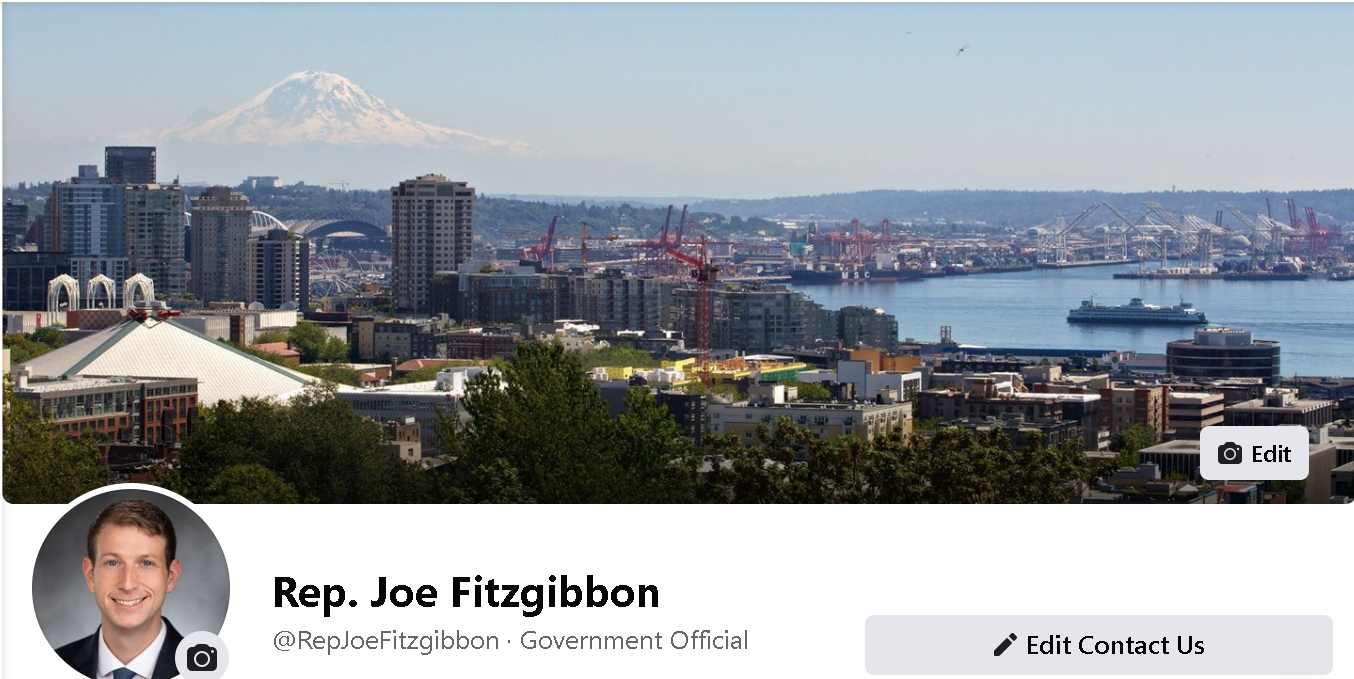
I now have an official legislative Facebook page, @RepJoeFitzgibbon. Give me a follow for the latest updates on legislation and the 2021 legislative session.
Thanks for reading!
Legislative Update: Staying in Touch, COVID Updates, West Seattle Bridge and Police Accountability
Engaging with Joe and Eileen during a remote session
Because of the COVID-19 pandemic, it’s not safe to hold a normal session of the Legislature, so the House of Representatives will be holding meetings and events remotely.
You can still watch all those meetings, contact your lawmakers, and participate. For years, the House has added new methods of letting people from around the state get informed and involved. Here are four options for you to stay engaged with a remote House:
- Learn—The whole legislative process, from start to finish, is explained at wa.gov/legislature/Pages/Overview.aspx
- Watch—Go to org for broadcasts of debates, votes, committee meetings, and other events in the House and Senate. There’s also an extensive archive of past events, if you couldn’t watch it live.
- Research—To look up legislation by lawmaker or topic, visit leg.wa.gov/billinfo/
- Advocate—Feel free to reach out to our offices with your thoughts about bills and issues we are working on this session. Here is a guide on how to send us your thoughts on bills: https://app.leg.wa.gov/pbc/
Our offices will continue to meet with constituents throughout the legislative session over Zoom. For more information on how to set up these meetings, please reach out to our legislative aides – you can find their contact information here: https://app.leg.wa.gov/Rosters/Members/House
Since we are all working remotely, the best way to ensure we receive your communication is to reach out via email or phone, rather than traditional mail. We are looking forward to another busy session working on issues that are important to our district and state.
Now your phone can help stop the spread of COVID-19!
The state of Washington recently unveiled a new statewide COVID-19 exposure tool for iPhone and Android users called WA Notify. The tool is free to use, anonymous, and protects your privacy. It works by alerting you whenever you are around another WA Notify user who later tests positive for COVID-19. BUT—you have to take a few manual steps to turn on the notification system on your phone.
Were you one of the 700,000 Washingtonians to activate WA Notify in the first 24 hours it was available? If not, join today to utilize another tool to help stop the spread and protect yourself and our community. It’s a small step, but one that will play a big role along with mask wearing, handwashing, and staying home as much as possible.
The sooner we stop the spread of the virus, the sooner our local businesses can reopen and the sooner life will start to get back to normal. We can all do our part by taking steps like downloading this app and staying home whenever possible.
Note from Eileen:
Washington’s Coronavirus vaccine plan
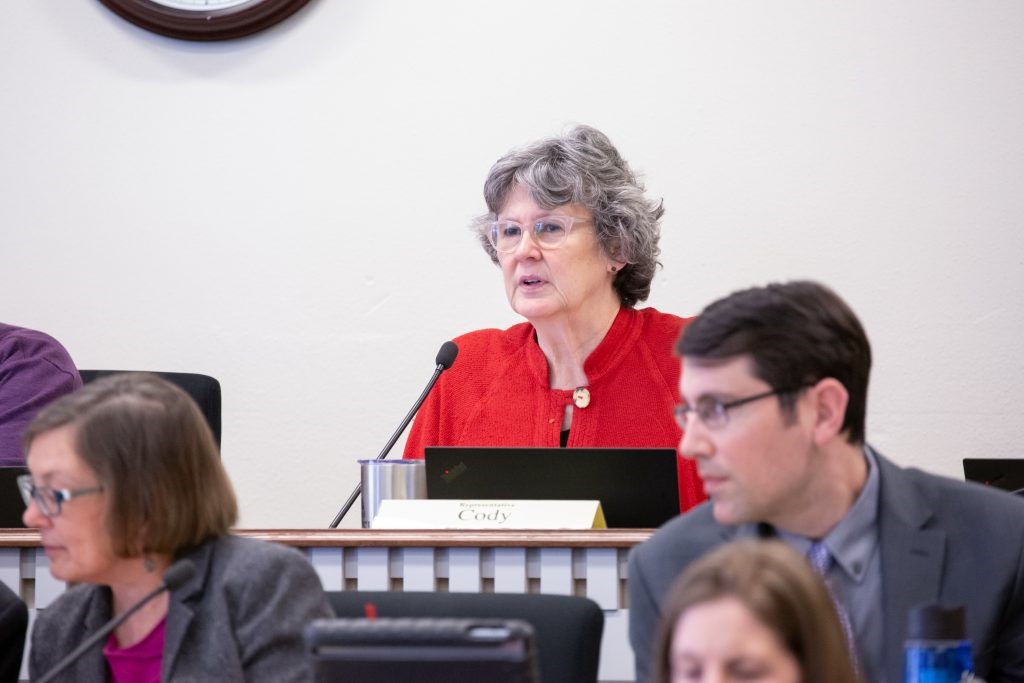 In less than a year, several vaccine trials have completed and we are now distributing vaccines. Even though the vaccine is a huge milestone, we have to maintain social distancing and wear our masks. It will take quite a while for the vaccines to be available to most of us. The Centers for Disease Control (CDC) is designating the distribution schedule and we are currently in Phase 1A, which includes:
In less than a year, several vaccine trials have completed and we are now distributing vaccines. Even though the vaccine is a huge milestone, we have to maintain social distancing and wear our masks. It will take quite a while for the vaccines to be available to most of us. The Centers for Disease Control (CDC) is designating the distribution schedule and we are currently in Phase 1A, which includes:
- High-risk workers in health care settings
- High-risk first responders
- Residents and staff of nursing homes, assisted living facilities, and other community-based, congregate living settings where most individuals over 65 years of age are receiving care, supervision, or assistance
In Washington state, that’s 500,000 or more individuals. Right now, we’ve only received about 100,000 of the Pfizer vaccines. Phase 1B, which has yet to be defined, is still a ways out and access to the vaccine most likely won’t be available to the general populace until spring. That’s why we must maintain the masking, social distancing, and limited gatherings for the next few months.
The good news is that we expect the supply of vaccine should be fairly reliable and we can ensure that health care workers and high-risk seniors in nursing homes are vaccinated.
In the meantime, it’s important we educate our friends and family about the safety of vaccines. We’ve seen a lot of resistance to vaccines in recent years. Remember the measles outbreak in the Vancouver area just a few years ago? This vaccine is going to be completely voluntary but we don’t want misinformation to cause people to choose against something that can save their life, or the life of a loved one. We have to make sure everyone has the tools to make informed choices, so please review the Department of Health’s COVID-19 vaccine page.
Note from Joe:
West Seattle Bridge Update
The closure of the West Seattle Bridge on March 23 has severely restricted the mobility for West Seattle and Vashon residents, and has impacted Burien and North Highline residents as well due to diversion onto other routes south of the peninsula. Getting this major connector operational must be one of our city and state’s highest transportation priorities. Rep. Cody and I are members of the West Seattle Bridge Community Task Force and have been working with Mayor Durkan and the Seattle Department of Transportation to make sure we solve this problem as quickly and efficiently as possible.
After presenting the Mayor with several options to repair or replace the bridge, I am pleased to report that Mayor Durkan has elected to repair the current bridge. This option will allow the bridge to return to operation as soon as mid-2022. The repair will happen in two phases. The first phase of the repair work is happening now and scheduled to finish before the end of the year. Planning for the second phase will begin early next year and will be informed by how the current repair work responds to the winter weather.
A repaired bridge will have a shorter lifespan than a replacement bridge, but it will allow the bridge to reopen much sooner than a replacement would. It will provide us the time we need to plan and fund a long-term replacement bridge. Restoring mobility to West Seattle’s residents and ensuring that the port is open for business is vital to Seattle’s economic recovery. This will also give us a chance to build a new multi-modal bridge that could include space for Sound Transit’s light rail expansion to West Seattle.
Police Accountability and the Policing Policy Leadership Team
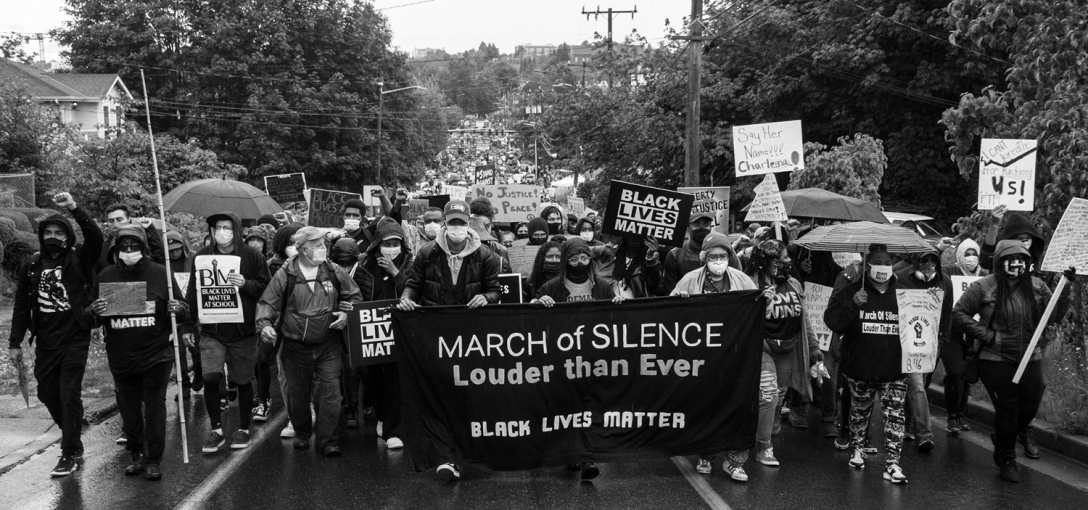
When someone is shot or killed by police and the law doesn’t offer a pathway to justice, it damages the community, the reputation of law enforcement, and the entire concept of justice. After the killing of George Floyd by Minneapolis police officers, historic protests against racism and police brutality broke out across the country and in our own0backyard. As policymakers it is our responsibility to listen to the anguish and righteous anger of thousands of peaceful protestors and work with Black, Brown, and Native American communities to create laws that truly hold police accountable and create equal justice in our state.
House Democrats are working closely with the families of victims of police violence, community representatives, members of law enforcement, academics, young people, the Governor’s Task Force on Independent Investigations on Police Use of Force, and Senate Democrats to develop a comprehensive package of bills to:
- strengthen police accountability measures; (reform the decertification process for police officers who break the law)
- limit questionable police tactics and the use of deadly force; (ban chokeholds, no-knock warrants, unleashed police dogs, tear gas, and most hot pursuits)
- increase transparency of police activity and; (create a searchable database of police misconduct and use of force incidents)
- ensure truly independent investigations and prosecutions of egregious police misconduct. (Create an independent agency to investigate police shootings, sexual assaults, deaths in custody, and major uses of force)
Rebuilding our communities’ trust in law enforcement is of paramount importance. Police officers are the first and often the only interaction the public has with our government. We must ensure that preserving human life is the highest priority for our law enforcement and that they are being held to the highest standards. This will be one of the Legislature’s top priorities this year.
Thanks for reading!
Legislative Update: COVID-19 Information & Resources
Dear neighbors,
The COVID-19 pandemic is creating stressful, overwhelming, and worrying situations for Washington families. Our thoughts are with all of you as you do your best to keep your loved ones well. During this confusing public health emergency, it might be hard to determine where to turn for help or information. We hope that this note helps direct you to the right resources to navigate this unprecedented crisis.
After declaring a state of emergency, Gov. Jay Inslee has implemented a series of emergency actions to slow the spread of the virus. These include a statewide shutdown of restaurants, bars, and gyms and a prohibition of gatherings with over 50 people. The temporary ban follows last week’s statewide school closures.
Such measures, which may seem drastic, are critical social distancing practices to prevent person-to-person transfer of COVID-19. Even if you do not show signs of infection, you can still be a carrier and should follow proper precautions.
The sudden closure of schools and businesses is seriously impacting many Washington families, who may be facing financial hardship after being laid off or struggling to find daycare for their children home from school.
How to stay healthy and slow the spread:
For parents and students:
- School closure FAQs
- Support for parents and students during school closures
- Check with your local school district to see if they are providing free meals for kids.
For workers and people seeking employment:
- Worker Q&A from the Employment Security Department
- Financial resources for Washingtonians impacted by COVID-19
- COVID-19 paid family and medical leave FAQ
- Paid sick leave and COVID-19
- Emergency assistance programs
For employers and business owners:
- Insurance information from the Office of the Insurance Commissioner
- Governor’s resource list for impacted businesses
- Business relief during COVID-19 pandemic
- COVID-19 business resources for WA state
For a directory of all these resources and more, continue checking the websites below for updated information:
- Washington House Democrats’ COVID-19 page
- Governor’s COVID-19 page
- Department of Health
- Centers for Disease Control and Prevention
Let’s all do our part to keep our families healthy and safe.
![]()
Legislative Update: Coronavirus
Friends and neighbors in the 34th legislative district,
The 2020 legislative session has come to a close! Please keep an eye on your mailboxes for a paper newsletter from each of us, where we’ll share more about the biggest issues we tackled in Olympia this year.
Until then, here’s an update on what’s happening with the COVID-19 outbreak.
Coronavirus Update
To those who have lost loved ones in the last couple weeks: we extend our deepest sympathy.
It is critical that everyone has accurate, up-to-date information about protecting themselves and their loved ones. Following guidance from the Department of Health will help ensure we are doing our best to keep our most vulnerable community members safe.
If you have further questions, please go to the Department of Health website or call their hotline at 1-800-525-0127. Phone lines are currently staffed from 6am to 10pm, 7 days a week. Please note this call center cannot access COVID-19 testing results.
$200 Million for Public Health Response
As we mentioned in last week’s newsletter, we approved additional funding for state agencies, local governments, and federally recognized tribes to respond to the coronavirus. The final amount was $200 million, which goes toward increasing testing and surge capacity, personal protective equipment, local public health call centers, and mitigating impacts to businesses.
Recommendations
 Here’s a quick reminder of important things you can do to protect yourself and those around you:
Here’s a quick reminder of important things you can do to protect yourself and those around you:
- Wash your hands often and avoid touching your face.
- Clean and disinfect objects and surfaces.
- Stay home if you are sick and call your health care provider before you go to a clinic or emergency room.
- Don’t attend large gatherings if you or someone in your home is sick. Governor Inslee has also issued an emergency proclamation prohibiting gatherings of more than 250 people.
Additionally, the King County Public Health Department has further guidelines available here.
Make sure you talk to your health care provider, pharmacist and insurance provider about keeping an emergency supply of medications at home if you or someone in your household are on a regular prescription drug regimen to treat specific conditions. The Insurance Commissioner has issued an emergency order requiring insurers to allow a one-time early refill for prescription drugs.
The Washington Health Benefit Exchange has also opened a special enrollment period for individuals without insurance. More details on how to sign up are available here.
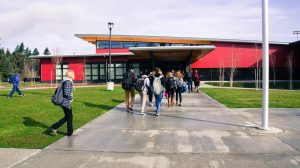 School Closure Updates and OSPI Guidance and Resources
School Closure Updates and OSPI Guidance and Resources
Highline School District has announced it will close on Friday, March 13th, with a planned restarting date of April 24th. More information about food services and supplemental learning is available here.
Seattle School District has announced it will close on Friday, March 13th, with a planned restarting date of April 24th. More information about food services and supplemental learning is available here.
Vashon Island School District has announced that it will close on Friday, March 13th, with a planned restarting date of Friday, April 24th. More information about food services, childcare, and supplemental learning is available here.
En español:
El Distrito Escolar de Highline cerrará todas las escuelas a partir del viernes, 13 de Marzo al viernes, 24 de abril. Para más información sobre servicios de alimentación y actividades de aprendizaje complementario presione aquí.
El Distrito Escolar de Seattle cerrará todas las escuelas a partir del viernes, 13 de Marzo al viernes, 24 de abril. Para más información sobre servicios de alimentación y actividades de aprendizaje complementario presione aquí y aquí.
El Distrito Escolar de Vashon Island cerrará todas las escuelas a partir del viernes, 13 de Marzo al viernes, 24 de abril. Para más información sobre servicios de alimentación, cuidado infantil, y actividades de aprendizaje complementario presione aquí.
The Office of the Superintendent of Public Instruction has a COVID-19 Guidance & Resources webpage where school districts and parents can find information, as well as a tracker of school closures that includes private schools and higher education institutions.
Support for Workers and Small Businesses
 We also want to make sure that these critical preventative measures don’t negatively impact our workers and businesses. The Governor’s office has compiled resources for you to use if your employment has been impacted by the coronavirus.
We also want to make sure that these critical preventative measures don’t negatively impact our workers and businesses. The Governor’s office has compiled resources for you to use if your employment has been impacted by the coronavirus.
For workers, more information is available here. Details include:
- Unemployment benefits may be provided for workers whose employer temporarily limits operations when workers need to be quarantined after COVID-19 exposure.
- Unemployment benefits may be provided for workers without paid sick leave who follow public health guidance to isolate themselves after exposure to COVID-19.
- If a worker falls seriously ill and is forced to quit, they may qualify for Paid Family Medical Leave. Once recovered and available for work, they may apply for unemployment benefits.
- The full-time requirement is removed, expanding standby ability to part time workers who are isolated.
For businesses, more information is available here. Details include:
- Assistance from the Department of Revenue for businesses that are unable to file or pay their taxes on time because of COVID-19.
- Export assistance from the Department of Commerce and Small Business Administration.
- Employer assistance from the Employment Security Department.
- Insurance Commissioner support to answer coverage questions for coronavirus-related damages.
COVID-19 Testing
We are aware that there has been an issue with testing availability. Previously, the U.S. Centers for Disease Control (CDC) restricted COVID-19 testing to people with serious respiratory illnesses who had traveled to countries with outbreaks or people who had close contact with someone who tested positive. The CDC has updated these testing guidelines.
The Emergency Order issued by the Insurance Commissioner also requires Washington state health insurers to waive copays and deductibles for anyone requiring testing.
The DOH Testing for COVID-19 page and the UW Medicine Coronavirus page also provide information on testing for coronavirus.
We understand people are frustrated because it’s hard to find clear direction on where to go or how to get tested. We also know that more tests are becoming available and more laboratories, both public and private, may soon be offering more options for testing. We are hopeful that this means the situation will become easier to navigate.
For now, if you have symptoms and believe you should get tested, contact your health care provider. If you don’t have access to a doctor, call a local urgent care clinic.
The DOH site (same as above) also outlines that we don’t have specific medications to treat COVID-19. If you are diagnosed you should follow your healthcare provider’s advice for managing your symptoms.
Gov. Inslee has also announced plans for the state to cover testing for the uninsured, please check back here for more information.
As we stated last week, you can also stay up to date by following the Department of Health online at the various websites and social media channels below:
Thanks for reading, and please take care of yourselves.

Legislature Passes HB 1793, Don’t Block the Box
OLYMPIA—On March 9, the Washington State Legislature passed HB 1793, Rep. Joe Fitzgibbon’s Don’t Block the Box legislation.
This bill helps keep crosswalks clear, making cities safer for pedestrians. It also adds enforcement options for transit only lanes so buses and riders can get where they need to go.
“I’m pleased that my legislation to improve safety and mobility in Seattle is headed to the governor’s desk.” said Fitzgibbon. “This will help Seattle protect pedestrian safety downtown and help buses move passengers through the most congested roads in Washington more efficiently and quickly.”
Don’t Block the Box received attention last year when Rooted in Rights put out a video in support of the bill. They highlighted safety concerns about how frequently people in wheelchairs are forced to navigate through and around vehicles blocking the crosswalk.
Anna Zivarts, the Rooted in Rights Program Director, said “Everyone should be able to access our streets and sidewalks, especially those of us who rely on walking, rolling and buses to get where we need to go.” On final passage she added “Thanks to everyone in the legislature who stood up for the disability community and their transit-dependent constituents.”
HB 1793 was also supported by the City of Seattle, with Mayor Jenny A. Durkan noting “This legislation is a critical and long-overdue step to ensure transit and all our residents can move through our city quickly and safely. I applaud the advocates and legislators who worked together over the last year on this important bill – it will improve safety for pedestrians and cyclists, improve the reliability of transit, and manage congestion along key arterials.”
The bill now goes to the Governor’s desk for a signature.
Legislative Update: Coronavirus
Dear neighbors,
Washington state is experiencing an increase in cases of the coronavirus (COVID-19) and it is anticipated that the virus will continue to spread. There have been several deaths. However, we want to make sure you have the facts and understand the basics on how to stay healthy.
First, health officials are working rapidly to identify and test people who may have been exposed. Public health officials in our state have experience responding to pandemics and are working with state and county health officials to share information, deploy resources, and respond at maximum capacity.
Second, currently the risk to the general public is low due to the unlikelihood of exposure to the virus. Risk of exposure is elevated for healthcare workers, people who have had close contact with persons with COVID-19, and travelers returning from affected international locations (China, Iran, South Korea, Italy, Japan, and Hong Kong).
Third, these are the recommendations from the Washington State Department of Health on how to respond in your daily life:
- Wash your hands often and avoid touching your face.
- Stay home when you’re sick.
- If you are sick and wondering what to do, call your healthcare provider before you go to a clinic or emergency room.
- Show compassion and support for individuals and communities most closely impacted and anyone who might be sick.
- Get prepared in case for a COVID-19 outbreak in your community. We have resources at https://www.doh.wa.gov/Emergencies/Coronavirus#beprepared.
If you have questions, you can call the Washington State Department of Health at 1-800-525-0127 and press #.
You can also stay up to date by following them online at the various websites and social media channels below:
- Website: https://www.doh.wa.gov/Emergencies/Coronavirus
- Facebook: https://www.facebook.com/WADeptHealth
- Twitter: https://twitter.com/WADeptHealth How Can I be Prepared?
What we are doing in the Legislature
I, Representative Cody, am also serving as our health care lead. My colleague Rep. Schmick and I have offered a bill to transfer $50 million to get state agencies and local governments the necessary funding to respond to COVID-19. It also will give the Department of Social and Health Services funding to increase nursing staff to help address this growing need. We’ll continue to work with DOH, DSHS, and other state agencies to identify what the Legislature can do to ensure we have the necessary resources.
We are all in this together. Please make sure to follow the DOH recommendations to keep yourself healthy and keep up on latest information via the social media channels above. I’ll keep you updated on the status of our efforts in the Legislature to respond.

Environmental Update: Low Carbon Fuels, Gas Pipe Leakage, Plastic Bags, Recycled Content
With just under two weeks left in this year’s legislative session we’ve passed most of the deadlines that bills face before becoming law. So, what environmental legislation is still on the table?
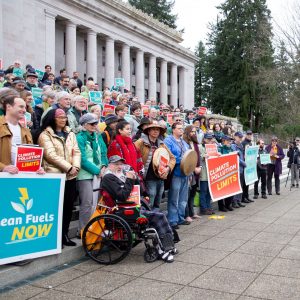 Clean Fuel Standard: Nearly half of Washington’s greenhouse gas emissions come from the transportation sector. This bill gets to the core of the problem by reducing the carbon intensity of fuel — cleaner fuels mean lower emissions and better air quality for all of us. A clean fuel standard would also give rural economies a boost by creating a market for turning farm and forestry waste into biofuel. The house passed HB 1110 in the third week of session, and it’s now up for consideration in the senate. I wrote more about the bill in a piece for the Seattle Times.
Clean Fuel Standard: Nearly half of Washington’s greenhouse gas emissions come from the transportation sector. This bill gets to the core of the problem by reducing the carbon intensity of fuel — cleaner fuels mean lower emissions and better air quality for all of us. A clean fuel standard would also give rural economies a boost by creating a market for turning farm and forestry waste into biofuel. The house passed HB 1110 in the third week of session, and it’s now up for consideration in the senate. I wrote more about the bill in a piece for the Seattle Times.
Gas Pipeline Leakage: We don’t have much data about how many gas pipeline leaks happen annually, or what volume of gas they leak. HB 2518 addresses that problem. Methane is a powerful greenhouse gas, and leaks from pipelines cost gas customers money on their gas utility bills. This bill would require gas utilities to submit annual reports about leaks, including causes and amounts, and would include emissions created by those leaks in greenhouse gas emissions reporting. It also gives utilities more options to pay for pipeline fixes. This bill will reduce pipeline leaks and it passed out of the House with a bipartisan vote.
Reducing Plastic Bag Pollution: I talked about this bill in my e-newsletter at the beginning of session and am happy to report that it’s continuing to move through the legislative process. It passed out of the House Environment & Energy Committee, which I chair, on Thursday with a unanimous vote.
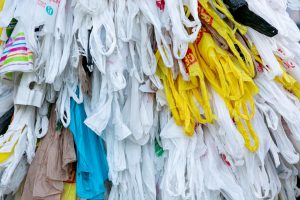
Recycled Plastics: This first-in-the-nation legislation would set recycled content requirements for plastic beverage bottles, requiring that producers of these bottles use more recycled plastic. It also helps support a strong market for recyclables, which helps keep as much plastic as possible out of landfills and out of our waters. We passed HB 2722 off the House floor earlier this session and it’s now in the Senate Ways and Means Committee.
Protecting Clean Water: The biggest step we are taking this year to improve habitat for salmon is HB 1261 which would protect salmon spawning waters. Right now, suction dredges can be used to mine for gold in critical habitat for salmon or steelhead across Washington state, even in waters that WDFW has deemed too fragile for fishing. Suction dredge mining increases the levels of silt in the water and heats up our streams, killing young salmon. It stirs up mercury which is then absorbed by salmon, steelhead, trout, and everything in the food chain. This bill would discontinue suction dredge mining and other kinds of motorized mining in critical habitat for salmon, steelhead, and bull trout. The House passed this bill early in session and the Senate has voted it out of committee, the next step is a vote on the Senate floor.
Legislative Update: Insulin Prices, Affordable Housing, Block the Box, School Meals
Telephone Town Hall Notice
We will be hosting a telephone town hall this coming Monday, February 24th at 6pm! You can sign up here to join us and ask questions about issues we’re working on this year!
Note from Eileen:
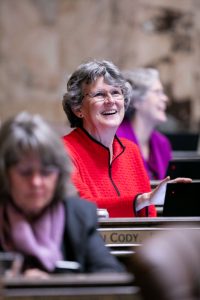
Insulin Bill Passes the House
Washington State, like the rest of the country, is facing a crisis in prescription drug affordability. The cost of insulin has skyrocketed in the last decade, and too many of us are personally experiencing this issue. Currently, our state has implemented legislation to evaluate contributing factors to health care costs for patients. We know we need to do more to lower prescription drug costs.
This week, the House passed bipartisan legislation to reduce the cost of insulin. For two years, House Bill 2662 will cap the total out-of-pocket cost of 30-day insulin supplies to $100. It will also establish the Total Cost of Insulin Work Group, which will review and develop strategies for reducing insulin costs. With this legislation, we are building a foundation for more affordable care for our state. The bill is now headed to the Senate for consideration. I look forward to seeing it on the Governor’s desk!
Affordable Housing
The need for affordable housing is growing throughout our state, and we have a lot of work to do to help our local governments. Many of our neighbors are one financial crisis away from homelessness. In Olympia, we are fighting to combat some of the barriers to building and finding a stable place to live.
This session, we passed several affordable housing measures, including House Bills 2634 and 1694. HB 2634 will provide tax exemptions on properties sold to organizations for low-income housing. HB 1694 will allow renters to pay deposits, nonrefundable fees, and last month’s rent in installments. Both bills ensure that affordable housing is more accessible and more abundant, and they give our communities the tools to build or keep the units they need. All people in our state should be able to find safe, stable housing, and these bills are vital in securing that.
Data Privacy
I have heard from many of you about the importance of preserving our privacy. In Olympia, we are working to regulate the use of your data and maintain your right to privacy.
This week, the Senate passed Senate Bill 6281 — the Washington Privacy Act — with bipartisan support. The bill is modeled after similar legislation in California, and it establishes personal data rights for consumers and outlines responsibilities of entities who use that data. This is an important consumer protection that I hope to see on the House floor. It now goes to the House Innovation, Technology, & Economic Development Committee.
I am happy to announce that House Bill 1888, which protects the information of public employees, also passed out of the House with bipartisan support. This legislation will protect our employees by giving them a reasonable expectation of privacy for their personal, identifying information. It now heads to the Senate for consideration.
I’m looking forward to seeing these important consumer and employee protections pass into law this year!
Note from Joe:
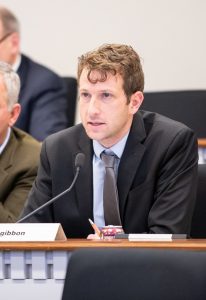 Don’t Block the Box
Don’t Block the Box
Transit lanes are for transit vehicles. The delays that line violators cause are frustrating both for bus commuters and for people obeying the law while others cheat the system. The current options for enforcing transit only lanes aren’t enough, which is why I’m sponsoring HB 1793.
This bill would also make cities safer for pedestrians, and particularly for people with disabilities. Blocked crosswalks can make navigating a city impossible, this helps make sure that our crosswalks are accessible for everyone.
The bill passed out of the House in late January and has a hearing next Monday, February 24th in the Senate Transportation Committee.
Feeding our Students
When kids are hungry, they can’t learn. In recent years Washington has made a lot of headway in getting our kids the food they need, this session I’m supporting HB 2660 to continue that work. This bill makes sure that our schools are taking advantage of federal dollars, and would make it so schools with a high percentage of eligible students provide all meals for free.
We’re currently 45th in the nation in school breakfast participation, and there are 285,000 food insecure students in Washington state. This bill would reduce administrative burdens, make things easier for parents, and prioritize our students’ needs. It passed out of the House last week with near unanimous support, and is scheduled for a hearing next week in the Senate Early Learning & K-12 Education Committee.
Thanks for reading!


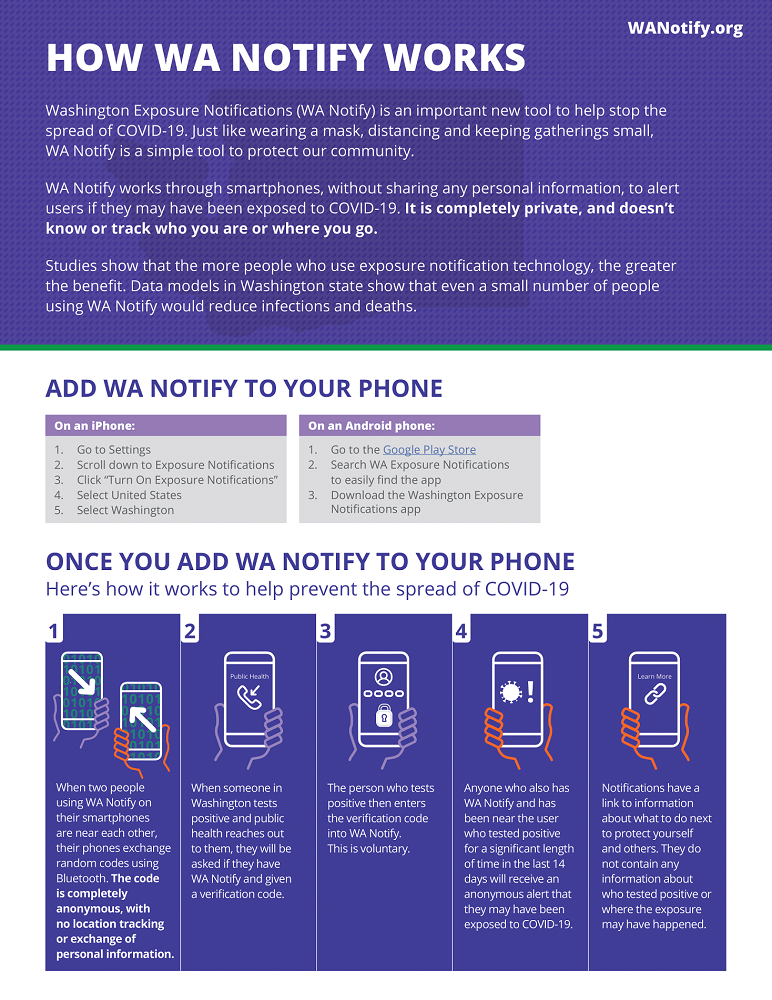
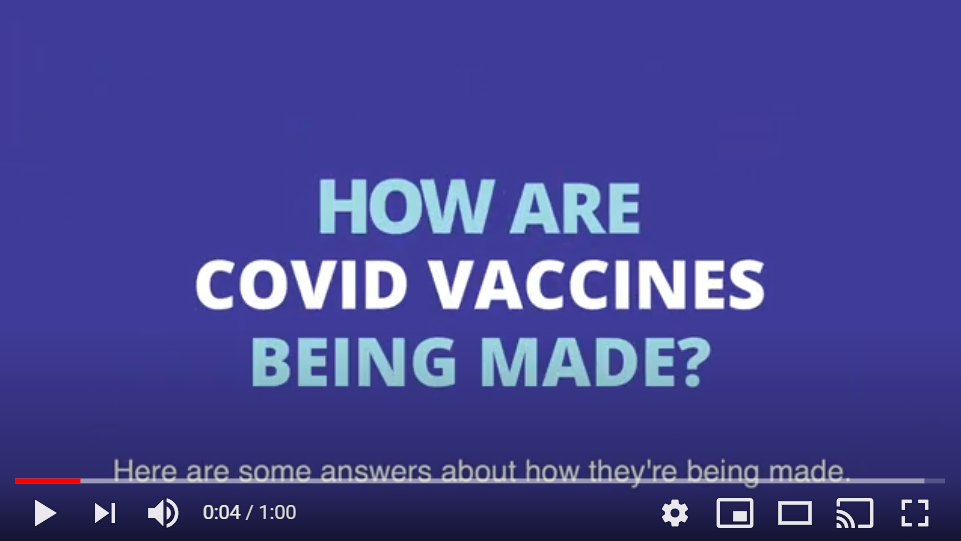 ‘
‘